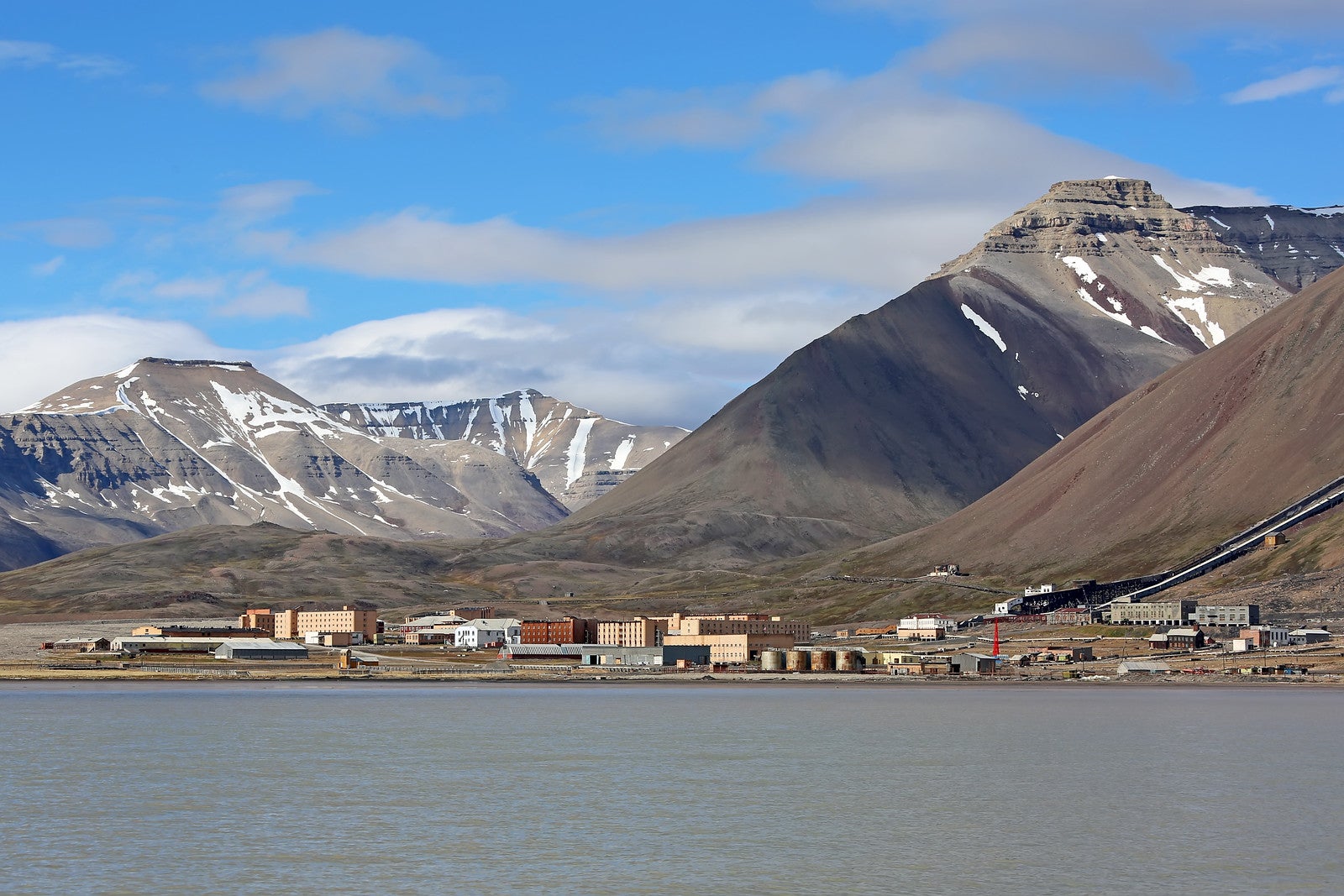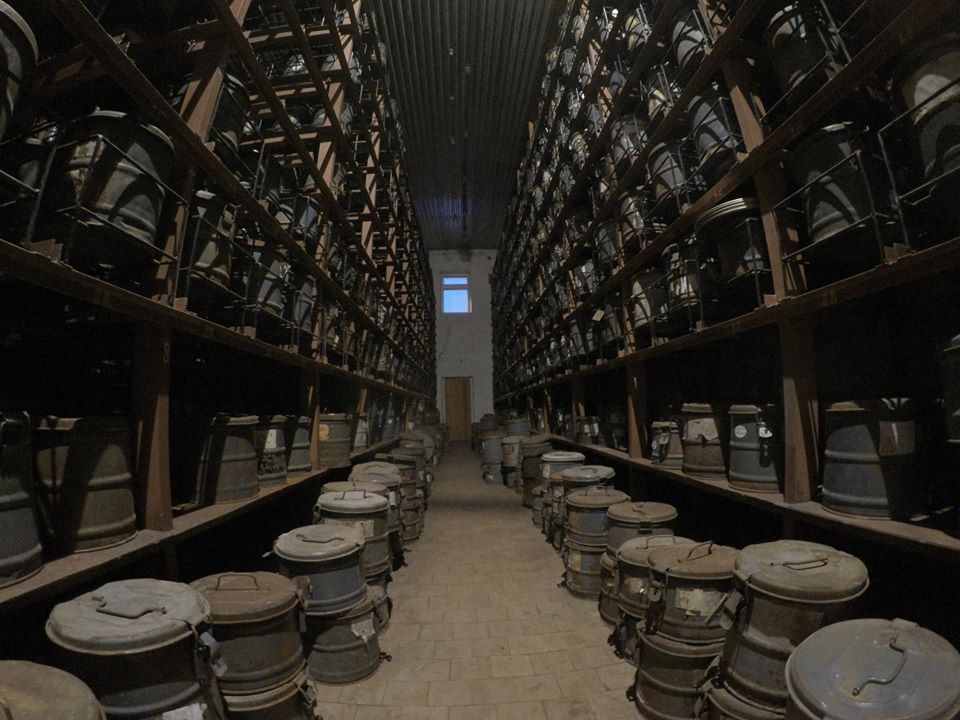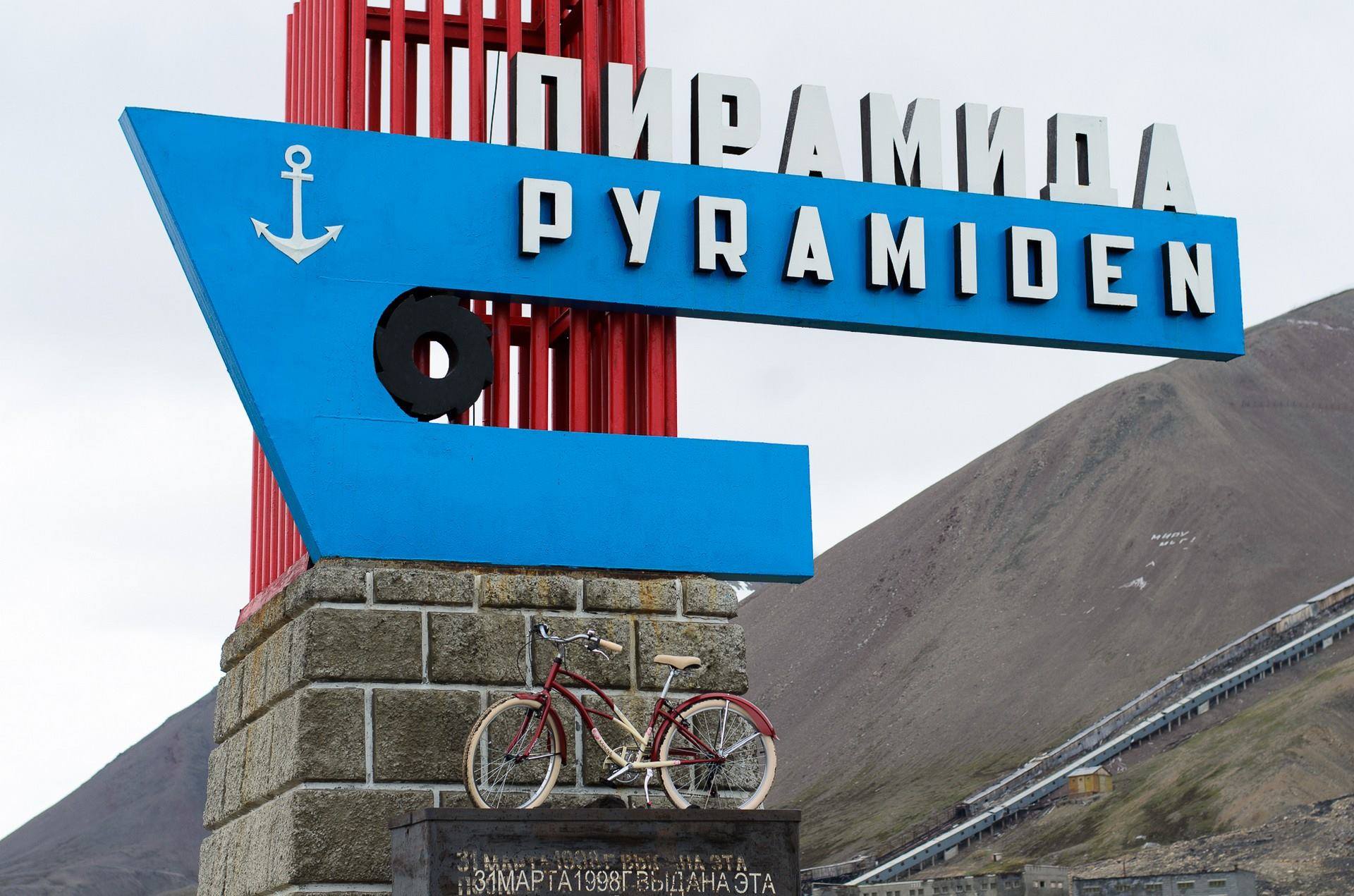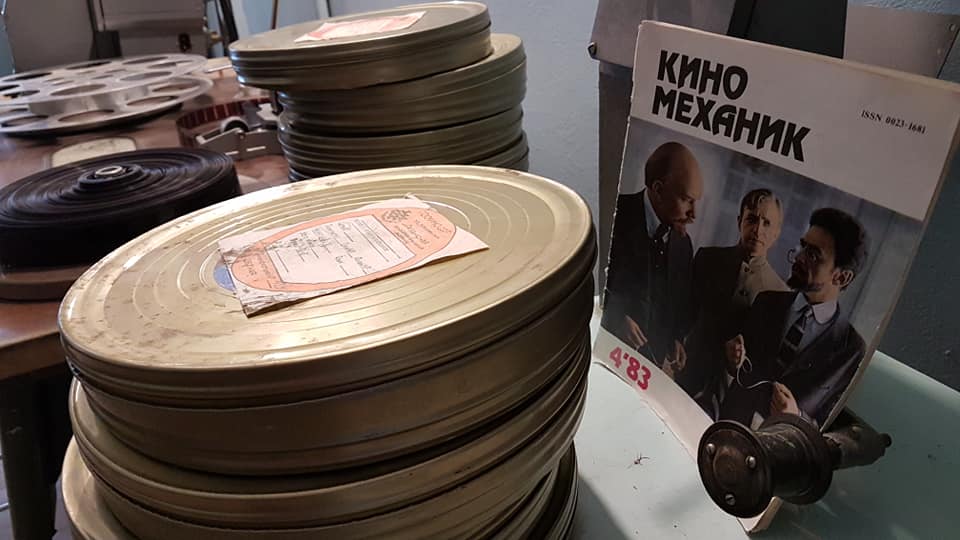Pyramiden: Welcome to the film festival at the end of the world
Lynn Houghton heads to the movies at an abandoned Soviet Arctic mining settlement on Svalbard

An eerie silence descends on this abandoned mining settlement in the Arctic, interspersed with furious winds emitting high-pitched fatuous noises as they whip past empty buildings.
A large bust of Stalin at the northwestern end of town still casts a stern, commanding look over proceedings, even though Pyramiden’s operations ceased in 1998 and all inhabitants, save a few caretakers, have left.
Some 600km from the north pole, the frozen wilderness of Svalbard, which includes the island of Spitsbergen where Pyramiden is located, is gripped by four months of polar darkness. At this latitude, ferocious storms, fjords freezing over and temperatures plummeting below -20C are a common occurrence. This is also the time that the Kings of the Arctic – otherwise known as polar bears – are most active as they use sea ice as a platform to hunt seals. Unlike their Canadian and Russian cousins, they do not hibernate and are confident about approaching and investigating human habitation. However, it is strictly forbidden to hunt or even interact with them due to a decree from the 1970s.

During its heyday, the Pyramiden settlement was a busy operation and popular with the miners, likely because of Western influence. Norway, the sovereign ruler of this International Territory, continues to share Spitsbergen with the Russians.
When it was going at full pelt, Pyramiden had a hotel, accommodation and offices, a fully stocked cafeteria and bar, swimming pool, gymnasium, Culture Palace, and even a house constructed of glass bottles. Built by the Swedish in 1910, the mining operation was acquired by the Soviet Union in 1927 at a time when coal extraction had taken over from whaling as the Arctic North’s major industry.
But, after decades of extraction, coal deposits finally became depleted and Pyramiden was eventually closed down by the state-run company Arcticugol. It coincided with the tragic incident of Vnukovo Airlines flight 2801, which, due to poor visibility, crashed into a mountain on descent and all 141, mainly Ukrainian, passengers lost their lives. The tight knit community of Pyramiden never fully recovered.
For years Pyramiden has been like a modern-day Pompei, frozen in time
When the gates of the diminutive town – only 1 sq km – finally closed in 1998, the impression was of residents making a mad dash for freedom. Half empty cups of coffee littered the cafeteria, sheet music was left on pianos, kitchen tables were set for meals that were never served, and unpaid invoices were strewn across administrators’ desks. For years Pyramiden has been like a modern-day Pompei, frozen in time.
Over time, the artefacts left behind have decayed very little due to dry, freezing temperatures. Among these treasures are 1,000 reels of film stored neatly in the Culture Palace’s film vault. The recovered films are mostly Soviet classics but also popular Western films such as One Flew Over the Cuckoo’s Nest and Some Like It Hot. These are interspersed with cartoons, as well as films made in different post-soviet countries such as Ukraine, Azerbaijan and Georgia, and are usually about their local culture.
The wood-panelled screening room of the Culture Palace has comfortably cushioned red seats with a capacity for about 100, and is decorated with plaques bearing Soviet emblems and pictures of Ukrainian farmers on the walls.

With the auditorium and the film reels still in good order, Arcticugol decided that, in honour of the 100-year anniversary of Soviet filmmaking, it would stage a film festival in 2019.
“A few years ago, cinema technicians began to scrupulously check and repair our film stock at Pyramiden,” says Anna Ivonina, who works for Arcticugol. “The results were far better than we ever could have expected. At that point, we decided our summer season guests should be able to request a movie screening in the Culture House. When visitors arrive, they can choose between two options: a feature film – aka Movie of the Day – or a shorter documentary film, which would cover lifestyle, culture or sport and was usually made in the language of the country our comrade is from.”
The first film festival took place on 27 August 2019 and was a nominal success, with several dozen participants who stayed at the newly refurbished Pyramiden Hotel. The programme included popular Soviet works directed by the likes of Bondarchuk, Daneliya and Gaidai, as well as documentaries shot by some of the best in Soviet cinema.
Pyramiden’s dark story still draws many tourists enthralled by its history
When a second cinematic event went forward in 2020, sustainability and ecology were woven into the programme and each day had its own separate title: Back to the USSR, with documentaries about the Soviet way of life and socialist realism, plus Soviet-Italian film, Nostalgia, which won the Fipresci Prize at the 1983 Cannes Film Festival; Arctic Day, which included more film showings plus dinner in the Pyramiden Restaurant, during which there was a lecture about how the festival came about; and Born in the USSR, covering television and satire in the Soviet Union. There were also guided tours of the projection room and film vault, and the festival concluded with an animated feature-length film, TheAdventures of Mowgli.

Even for those not terribly interested in Soviet film, attending the festival gives a fascinating glimpse into the town and how residents lived during the 20th century. Pyramiden’s dark story still draws many tourists enthralled by its history.
For those who choose not to stay at the Pyramiden Hotel, their base is likely to be Longyearbyen, Svalbard’s capital, 50km to the south.

Strangely, there are no cemeteries to speak of on Spitsbergen. People live here to work, with most fatalities being miners involved in cave-ins or accidents, and sailors expiring at sea. Once reaching retirement age, most choose to leave this challenging and harsh environment, seeking out warmer climes and creature comforts.
But it’s this frozen world which keeps Pyramiden preserved and safeguarded from change. The town, with the enduring physical manifestation of its memories, will not deteriorate for hundreds of years. It’s the perfect setting for a film festival at the end of the world...
Travel essentials
Priced from 14,900 NOK (£1,276) per person, the seven-day Pyramiden Hiking Adventure from Go Arctica departs every Saturday throughout the summer, including boat transfers to and from Pyramiden, accommodation and meals. Excludes first night accommodation in Longyearbyen and return flights.
Join our commenting forum
Join thought-provoking conversations, follow other Independent readers and see their replies
Comments
Bookmark popover
Removed from bookmarks